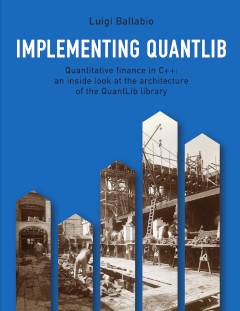public MCEuropeanBasketEngine(StochasticProcessArray process, string traits)
public MCEuropeanBasketEngine(StochasticProcessArray process, string traits, uint timeSteps)
public MCEuropeanBasketEngine(StochasticProcessArray process, string traits, uint timeSteps, uint timeStepsPerYear)
public MCEuropeanBasketEngine(StochasticProcessArray process, string traits, uint timeSteps, uint timeStepsPerYear, bool brownianBridge)
public MCEuropeanBasketEngine(StochasticProcessArray process, string traits, uint timeSteps, uint timeStepsPerYear, bool brownianBridge, bool antitheticVariate)
public MCEuropeanBasketEngine(StochasticProcessArray process, string traits, uint timeSteps, uint timeStepsPerYear, bool brownianBridge, bool antitheticVariate, int requiredSamples)
public MCEuropeanBasketEngine(StochasticProcessArray process, string traits, uint timeSteps, uint timeStepsPerYear, bool brownianBridge, bool antitheticVariate, int requiredSamples, double requiredTolerance)
public MCEuropeanBasketEngine(StochasticProcessArray process, string traits, uint timeSteps, uint timeStepsPerYear, bool brownianBridge, bool antitheticVariate, int requiredSamples, double requiredTolerance, int maxSamples)
public MCEuropeanBasketEngine(StochasticProcessArray process, string traits, uint timeSteps, uint timeStepsPerYear, bool brownianBridge, bool antitheticVariate, int requiredSamples, double requiredTolerance, int maxSamples, int seed)
var engine = new MCEuropeanBasketEngine(proc, "pseudorandom", 5 * 252, 0, false, true, 10000, 0.02, 1000000, 42)
ERROR: both time steps and time steps per year were provided
How is it possible to call MCEuropeanBasketEngine using the full Parameter set and pass null to the constructor?


